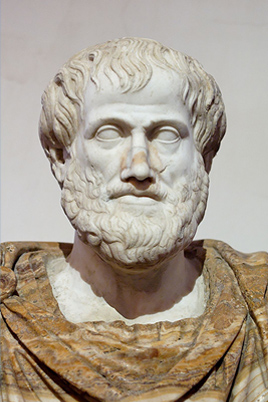(An Education Philosophy)
The Genesis of the idea of Manifestism "Explorism"
Manifestism is a philosophical term created by Ritesh Rawal to name his educational philosophy, it is an amalgamation of the English word "Manifestation" which means an event, action, or object that clearly shows or embodies something abstract or theoretical and "ism", ism at the end of a word suggests the word is related to a belief (or system of beliefs) accepted as an authority by a group or school of thought.
The genesis of this term goes back to the extensive research work carried out by Ritesh Rawal in exploring the world from a philosophical perspective and frameworks of world or root philosophies and the following are Ritesh's conclusive thoughts about the world or root philosophies.
Each philosophical framework consists of its fundamental branches that are:
- 1. Metaphysics
- 2. Epistemology
- 3. Axiology
A Philosophy should be able to deal with all the above-mentioned points meaningfully and with a fresh perspective and it should be able to give a new direction of thinking to the world about anything in any subject
- 1.Metaphysics is field of philosophy that is generally focused on how reality and the universe began. It examines the "Reality"
- 2.Epistemology is the branch of philosophy concerned with knowledge, It examines the "Knowledge"
- 3.Axiology is derived from the Greek that means "value or worth," and is primarily concerned with classifying things as good and how good they are. Axiology defines the "Values" in a philosophy
Ritesh evaluated the world based on following world philosophies:
- 1. Idealism
- 2. Realism
- 3. Pragmatism
- 4. Existentialism
- 5. Critical Theory
He conducted an in-depth study of Metaphysics, Epistemology, and Axiology. Ritesh comprehended the reality, Knowledge, and philosophical values of the aforementioned philosophy. During the research, he found that the philosophical perspective about evaluating and discovering the world has evolved due to the growth of human beings, changes in the social structure, evolution of technology and change in the thought process.
During the research, Ritesh found that the evolution of the society has also impacted the Metaphysics, Epistemology, and Axiology, in fact Ritesh's research revealed that the current era's social, economical, and philosophical environment is eager to find out about the world and its all the elements related to thoughts, ideologies and its very existence by exploring it rather than only believing in something which is the best, static, close to real-life or can be discovered through criticism. Based on the research and personal experience of looking at the world through the various world or root philosophies, Ritesh created his new world or root philosophy "Explorism" and defined Metaphysics, Epistemology, and Axiology for "Explorism".
Philosophical Analysis of Explorism:
Philosophical Definition of Explorism
The central idea behind explorism comes from inquisitiveness and the urge of basic human being to find out about the world, truth, ideas, ideologies, science, art, and about all the elements that exist in the world through own lenses and with the help of either self-created methods or by leveraging existing exploration or research tools available. The key idea is that dynamism and evolution of thought, physical and the social environment has evolved and changed with the passage of time, it has also created a deep impact on basic human nature and approach towards looking at the world. Incremental value gained by self dependence and that has created a natural demand to have independence in human nature, the evidence of such thought the process is quite clearly visible in the social structure in the current era. Explorism provides a strong fundamental philosophical framework to deal with inherent inquisitiveness of a human being to find out about the world, truth, ideas, ideologies, science, art in our own way.
Metaphysics of Explorism
Metaphysics in philosophy explains a specific manner in which the "reality" is defined as per a specific philosophy, according to Explorism Reality is explorable. Truth, ideas, ideologies, science, art find out about the world are not static or firm and are not just limited to pre-defined elements or ideas, thus reality is explorable.
Epistemology of Explorism
Epistemology in philosophy explains how "Knowledge" about Truth, ideas, ideologies, science, art and to find out about the world can be obtained as per a specific philosophy, according to Explorism the knowing comes by systematic exploration up to an extent that it creates a visible result, visible results are an important element of explorism.
Axiology of Explorism
Axiology in philosophy deals with the approach of the formation of philosophical values or Value (not the value system or family values) , according to Explorsim values are dynamic and evolve periodically with Metaphysics and Epistemology and during the process of exploring reality and seeking knowledge using Explorism as a philosophical framework or approach.

Plato
 Aristole
Aristole Peirce
PeirceSarte Kierkegaard
 Max Hokheimer
Max HokheimerRitesh Rawal
The Birth of Manifestism
Ritesh Rawal decided to dedicate his life to the cause of education, and according to him, education is the most important tool that can bring equality in society and uplift the socio-economic state of the world. Ritesh has been working in the field of education for more than a decade. After creating the world philosophy called Explorsim he continued his research work in the area of education, its evolution, and different eras related to education. In order to understand how Manifestism took birth lets analyze the basic structure of philosophies.

During the research and for the purpose of explaining the birth of Manifestism following world or root philosophies have been taken into consideration, the meaning of root or world in the context of philosophy is the philosophical framework that provides the fundamental route to understand the truth, thought, ideas, ideologies, science, art etc.
- Idealism
- Realism
- Pragmatism
- Existentialism
- Critical Theory
These are fundamental philosophies not related to any specific field or sector, when Ritesh extended his research work to evaluate existing education philosophical framework education, he discovered that the existing frameworks are evolved as per the eras they were created in, however with the evolution of social structures, environment, and human beings the philosophical approach towards education has to be evolved with the expectation and the purpose of education required in today's scenario and the component of visibility and tangibility has to address more clearly and in a philosophical framework. The existing philosophies addressed education up to the stage of experimentation which is a bit far from the expectation of the current era in which the stakeholder of educational philosophy has evolved and expect proof of applicability.
Proof of Applicability and education:
According to Ritesh Rawal, in today's world proof of applicability is an essential element and it needs to be addressed at the stage of a philosophical educational framework, so that learning space, the learning environment, teaching methodology, development of teachers can be done accordingly to establish proof of applicability.
Proof of applicability can only be established once the focus at the philosophical level will move beyond experimentation approach and in order to bring that change the ultimate aim of learning approach should be Manifesation of learning in the real-life either in the tangible or intangible form, therefore philosophically education would move towards a new direction called "Manifestism". This is the genesis of the world's new education philosophy "Manifestism" and this is how Ritesh Rawal created a new term and education philosophy called "Manifestism"
Structural Analysis of Manifestism
The structural analysis of education philosophy Manifestism revolves around following elements and stakeholders.
-
Curricular Emphasis:
Manifest the usage of learning in real life. Learning is deep-rooted in exploration. The manifestation of Learning is paramount. -
Teaching Method:
While creating or defining the Methods on the basis of Manifestism, facilitation of learning should result on manifestation of learning. -
Character Development:
According to Manifestism, the character development of a human being can be achieved by addressing the by manifestation of learning in real life. -
Learning space and learning environment:
Manifestism also brings structural and philosophical changes in manner The learning space and environment have been designed so far, according to Manifestism and its objective physical space and environment should also be designed with the objective of Manifestation of learning

World Manifestism Day
Education Philosophy Manifestism was announced and presented to the world for the first time in year 2019, on 27th Sep, hence 27th Sep is known as the World Manifestism Day.
On this day:
Journey of Manifestism, its usage in real life, extension and expansion in various dimensions of education is discussed.
Education institutes which have been designed using Manifestism as a philosophy share the examples of how they are using and getting learning outcomes based on Manifestism
Educators come together and share best practices and examples of Manisfestism
Children share their stories of Manifestism
Expansion of Manifestism
Expansion of a philosophy takes place by encouraging dialogues, discussions and continuous research about it. Expansion of a philosophy provides an opportunity to analyze it and look at its nature in different aspects
Research and Development
The expansion of Manifestism is very essential and it will happen when it will reach out to the people in different ways, in order to help people in developing deep understanding about Manifestism people from all age groups and all walks of life, professions etc are invited to ask questions, share their perspective, participate in events, a question and answer section in the website has been created for the purpose of open discussion about Manifestism.
Ritesh Rawal has created a research and development lab to dedicate time for the expansion of Manifestism. The first chapter of Manifestism which deals with "Manifestism of Agriculture" in education was recently released.